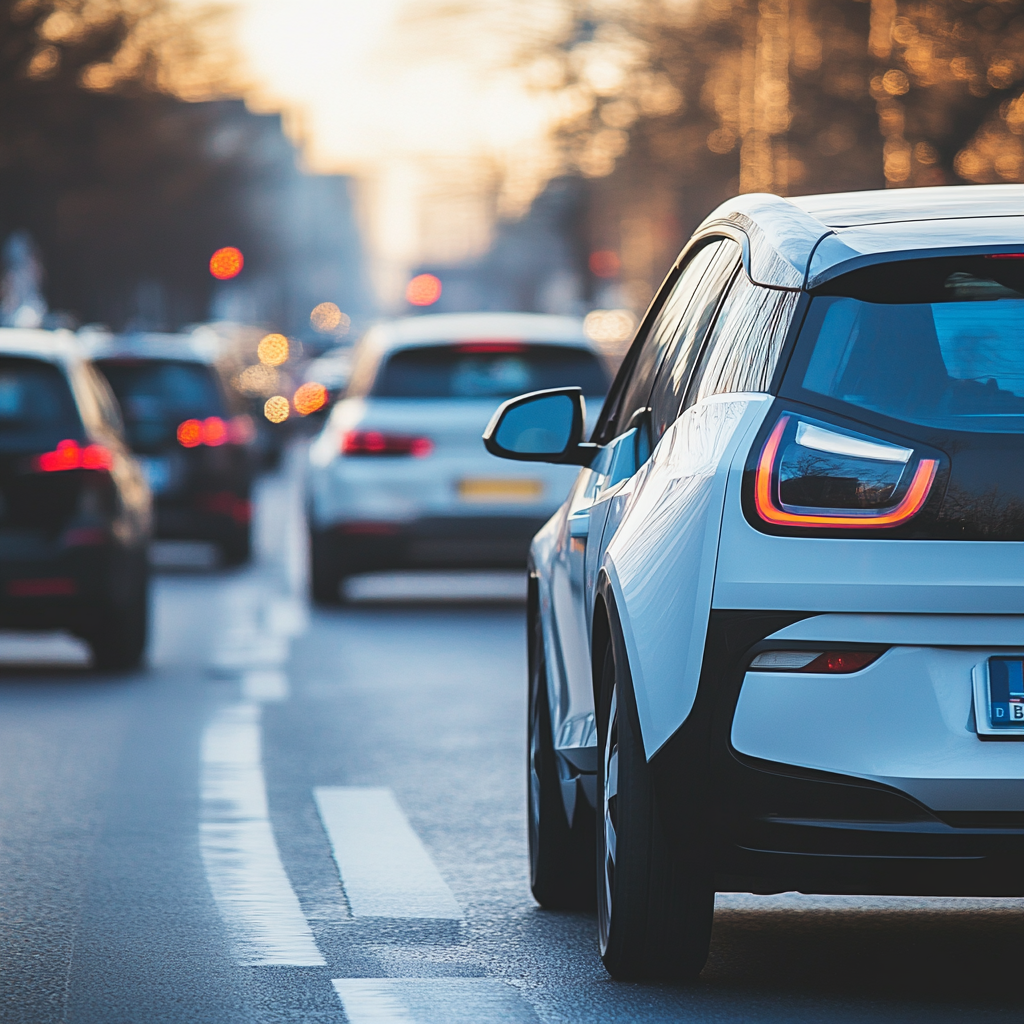
EV Drivers at Higher Risk of At-Fault Crashes Than Petrol, Diesel Counterparts
In the grand arena of automotive evolution, electric vehicles (EVs) have emerged as the dazzling knights clad in eco-friendly armor, heralded as the champions of the future of transportation. With all the buzz surrounding their green credentials, you'd think their drivers would be infallible, cruising seamlessly along the asphalt highways. But hold your horses—or rather, your Teslas. A startling revelation from a recent study threatens to pop the bubbly for the EV enthusiast community. Yes, it turns out that electric vehicle drivers are, brace yourselves, more likely to be part of at-fault road traffic accidents than their fossil-fuel-guzzling comrades. Now that’s something that’ll make you reconsider swapping the gas pedal for an electric one.
Let’s dive into the treasure chest of findings from this remarkable study conducted by the University of Limerick and Lero, which is set to strut its stuff in the illustrious pages of the journal Accident Analysis & Prevention. The researchers sifted through mountains of data—think insurance claims and telematics information from a staggering 125 million commercial vehicle trips across the Netherlands. This Herculean task involved a scrutiny of 14,642 vehicles over a span from January to October 2022. Packed with juicy insights, the results have implications that might just rev your engines—in the wrong direction.
Here are the key nuggets from this expansive analysis:
First on the list, we have an eye-watering 4% increase in at-fault crashes attributed to EVs, with hybrid vehicles hot on their heels at a 6% bump compared to traditional internal combustion engine vehicles. Uh-oh. You might want to hold that electric dream in your handbrake for a second.
Then, there's the perplexing reality of different driving behaviors. According to the data, drivers of electric and hybrid vehicles act somewhat differently behind the wheel compared to those operating good old petrol or diesel vehicles. Only time will tell if these behaviors have a rooting in the anatomy of the EV itself or if it’s simply something in the zen-like nature of an electric whip that makes folks drive differently.
Next up, we can’t ignore the higher repair costs lurking around the corner, which show that electric vehicles demand a staggering 6.7% more cash to fix than their gas-guzzling cousins. So not only could you end up in an accident that puts a dent in your pride, but also in your wallet!
Buckle up as we explore more of what these numbers entail. One of the most eyebrow-raising revelations from this research lies in what we all thought we knew. You might think that the relatively lower average mileage of EVs should correlate with fewer chances of getting into an accident. Nope! They’re clearly throwing that hypothesis right out of the window. Instead of hitting the brakes, they seem to have hit the accelerator in a wild twist of fate revealing that lower road exposure for EV drivers does not equate to a diminished risk of a mishap.
Dr. Barry Sheehan, the co-director of the Centre of Emerging Risk Studies at the Kemmy Business School, conveyed this intriguing remark: “Our research finds that despite their lower average mileage than internal combustion engines, lower road exposure for EV drivers does not reduce their risk of experiencing an at-fault insurance claim.” Let that sink in!
So, naturally, the next question becomes: why on earth is this happening? While the study itself scratches the surface without diving deep into the ocean of possibilities, a few theories start bubbling to the surface like tired rubber ducks in a bath.
Driver Complacency could pretty much be a key player in this melodrama. Having a quieter, smoother ride might evoke a cozy, relaxed state of mind—an oasis of comfort that sounds alarm bells for vigilance. Lesser engine noise can also be a contributing factor. With the good old rumble of an engine gone, pedestrian awareness could equally take a nosedive, leaving them blissfully unaware of the sleek silent approach of an EV.
Moreover, let’s not forget the different driving dynamics of these electrified beauties. The rapid acceleration and deceleration of electric vehicles could easily throw off a driver used to traditional gears and clutch control. Welcome to the ever-evolving world where our wheel experiences are heavily dictated by the vehicle technology against traditional expectations.
So, what does all this mean for the future? Well, the implications ripple outwards towards a wide range of considerations—imagine the need for specialized driver education tailored specifically for EV and hybrid vehicle drivers. We might all need to enroll in a school of electric prudence to navigate these new-age wheels with utmost safety.
Automakers could certainly bolster their design strategy to include enhanced safety features addressing yet another layer of complexity introduced by these findings. The insurance industry itself will likely feel the aftershocks too—imagine them re-evaluating policies and premiums on EVs and hybrids based on this newfound risk profile. Buckle up now; the landscape of vehicular safety and insurance is about to change!
All things considered, the research from Lero and the University of Limerick prompts a much-needed conversation among both die-hard EV advocates and skeptical onlookers alike. Sure, EVs offer a plethora of advantages, including reduced emissions and wallet-friendly operating costs, but we can no longer ignore the stark reality of the increased risk of at-fault accidents.
So here’s the deal: if you find yourself intrigued by the intermingling of road safety, EV technology, and everything in between, it’s time to expand your horizons. Dive deep into the resources available online to further your understanding, from academic studies to tech reports. You can check out insightful pieces like the UL-Lero Research on EV Drivers or TechCentral Report on EV Accidents.
For the eager to remain ahead of the curve, here’s your golden ticket! Want to stay up to date with the latest news on neural networks and automation? Subscribe to our Telegram channel: @channel_neirotoken
Taking a step back to observe the shifting tides may help you make safer, more informed decisions on your vehicular journey. After all, knowledge is power, and making roads safer starts with staying informed!

